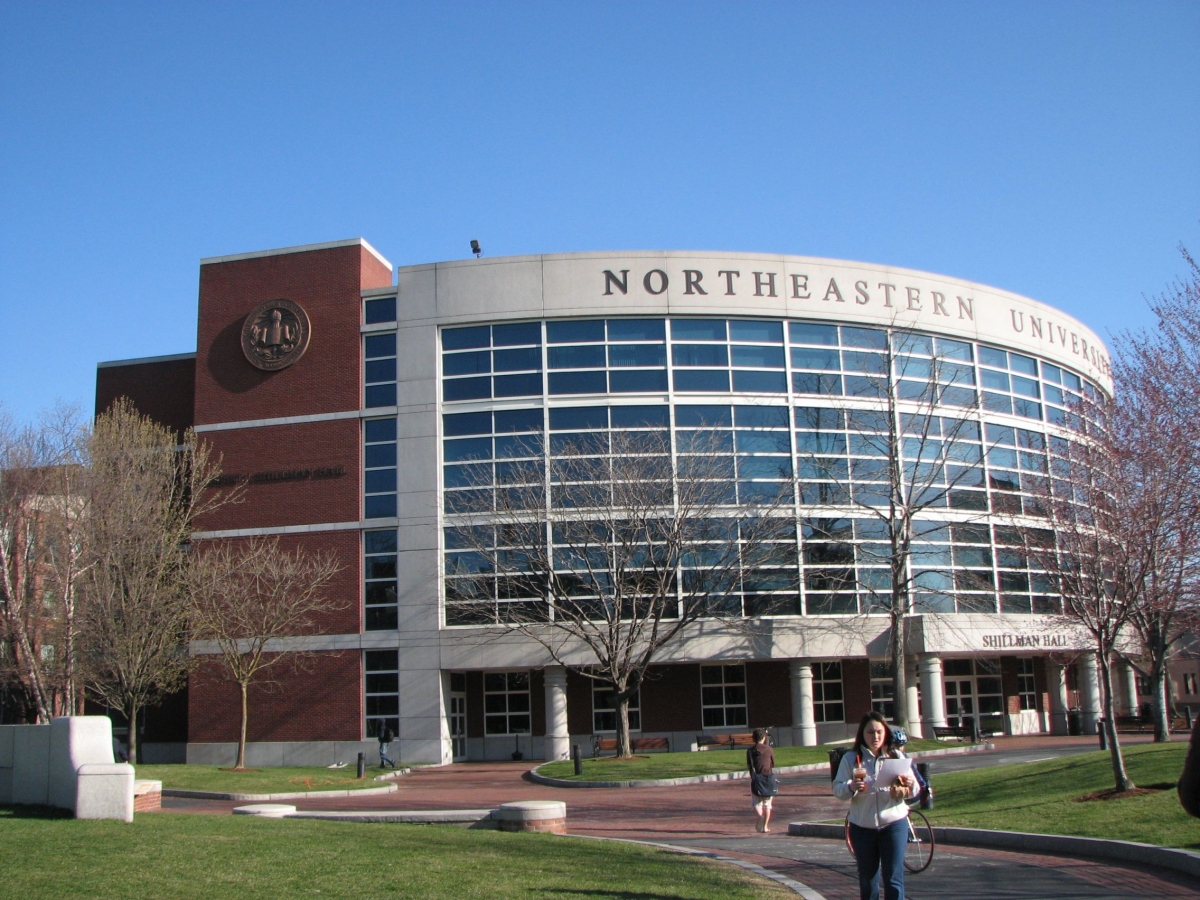
Home > Study in USA > Northeastern University - Boston Campus > Master of Science in Biotechnology (STEM)
Master of Science in Biotechnology (STEM)
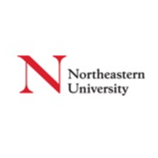 Northeastern University - Boston Campus, USA
Northeastern University - Boston Campus, USA

USD 32776
Annual Tuition Fee

USD 100 Waived
Application Fee

24 months
Duration

6.5
IELTS

90
TOEFL

75%
Min GPA
Program Overview
The MS in Biotechnology program was created to respond to regional and national needs for a stronger scientific workforce by preparing our students with the biotechnology expertise and professional skills they need to be immediately productive in industrial, governmental, and clinical settings.
Northeastern’s MS in Biotechnology is an innovative, non-thesis graduate degree program. The curriculum of this professional science master’s combines advanced interdisciplinary training in biology, chemistry, chemical engineering, and pharmaceutical science with the development of high-value business skills critical to success in today’s dynamic workplace. Graduates are prepared to innovate, collaborate, and lead as research, managerial, or technical professionals in a wide range of biotechnology specialties. The program is taught by respected faculty who are also senior leaders in their fields. They bring extensive experience, first-hand knowledge of industry trends, and assure that the curriculum is rigorous, current, and relevant.
Students choose from concentrations in which core courses are combined with specialization and elective study. All concentrations feature a co-op work experience with an industry, academic, or government employer. All concentrations except the biotechnology enterprise concentration include a hands-on lab experience and opportunities to take part in independent work in research labs. The following concentrations are available on our Boston campus:
The agricultural concentration goes beyond the production of biological drugs and focuses on the key agricultural biotechnology (agritech) principles and methods used today. Successful students learn the principles of agritech and the role they play in the concepts and fundamentals of agriculture today. The concentration addresses plant, animal, food, and ecological biotechnology. The learning of the students is reinforced by both lecture courses and project-driven laboratory experience that provides hands-on learning of modern agricultural methodologies.
The biodefense concentration prepares students for the initial homeland biodefense and bioterrorism response. Successful students learn the microbiology and epidemiology of biological agents that are potential threats, identify and propose countermeasures, and develop expertise in response and recovery strategies and policies. The learning combines the foundational biotechnology courses with case-based and hands-on bioethical, biowarfare, and bioterrorism courses.
The molecular biotechnology concentration provides students with didactic and practical knowledge in molecular biotechnology, protein expression, and structural biology. Students learn how to generate and optimize molecular forms used to express recombinant proteins to be used as biopharmaceuticals. Particular attention is paid to cutting-edge technologies such as RNAi and CRISPR/CAS9. In addition, the students learn how to purify biopharmaceuticals and analyze aggregation and how to prevent it.
The process science concentration focuses on the production of drug substance of biopharmaceuticals from the cell culture process to purification of biologic molecules. The students learn the principles of development and implementation of biological manufacturing processes through the integration of concepts and fundamentals of engineering and life sciences. The concentration addresses biochemical engineering, mammalian cell culture process development, and protein purification. The learning of the students is reinforced by both lecture courses and project-driven laboratory experience that provides hands-on learning of cell culture and protein separation.
The manufacturing and quality operations concentration trains students to ensure the production of quality medicines. Students will improve their competency and learn new practical skills, enabling them to increase productivity in various sectors of biotechnology—including basic research of biological systems, discovery, development, and manufacturing of biopharmaceuticals.
The biopharmaceutical analytical sciences concentration focuses on structures and activities of biological molecules and their variants formed during the production of biopharmaceuticals. Students learn the diversity of molecular forms derived from the biological products through various biological and chemical mechanisms, and the impact of these structural changes on the safety and efficacy of these biopharmaceuticals. The students learn the science and practice applied in the biotechnology industry to analyze and characterize these molecular forms. This is accomplished through both lecture courses of the analytical sciences and project-driven laboratory experience that utilizes analytical techniques such as mass spectroscopy and molecular separations.
The pharmaceutical technologies concentration focuses on the conversion of purified proteins to biopharmaceutical drug products that are compatible for clinical use. This concentration addresses the design of the product formulation, and the development and implementation of the drug product manufacturing processes. Students learn the sciences of the interactions of the biologic molecules in the process conditions and the relevant process technology, such as aseptic operations and freeze-drying, needed for drug product manufacturing. This is accomplished through both lecture courses and project-driven laboratory experience that provides hands-on learning of formulation design and drug product process development.
The scientific information management concentration focuses on the collection, analysis, and visualization of scientific data. This concentration addresses the issues surrounding big data that face industry today. Students learn how to manage, store, visualize, and provide overall analysis of large scientific data sets. This is accomplished through both lecture courses and project-driven laboratory experiences that provide hands-on learning of the impacts of data on the scientific process.
The biotechnology regulatory science concentration focuses on the science behind good regulatory practice today. This concentration addresses the issues surrounding current and innovative science practices that influence regulatory decisions. Students learn the science behind compliance. This is accomplished through both lecture courses and project-driven laboratory experiences that provide hands-on learning of the science behind dossier analysis.
The biotechnology enterprise concentration integrates business and management skills with the science of biotechnology. Students learn the fundamental concepts of leadership, entrepreneurship and innovation, financial decision making, and marketing. They gain teamwork, management, and business development skills in the process and graduate prepared to become scientist-managers. Some of the specialization courses for this concentration are offered only online.
Additional Information
Program Level Master's Degree
College/University Processing Time 30 Days
Program Format Full-Time
Optional Practical Training (OPT) 
General Admission Requirement
Academic Requirement
- Minimum Level of Education Required: To be accepted into this program, applicants must have a Bachelor's Degree.
- Applicants are required to have completed at least one course in biochemistry, organic chemistry, and advanced biology such as molecular biology or genetics or advanced physiology.
Similar Programs


Northeastern University - Boston Campus
Intake Sep 2026
Jan 2026, Jul 2025, Sep 2025

Application Fee

Duration
Test Score
6.5
IELTS
90
TOEFL
75
Min GPA


Northeastern University - Boston Campus
Intake Sep 2026
Jul 2025, Sep 2025, Jan 2026

Application Fee

Duration
Test Score
7
IELTS
100
TOEFL
75
Min GPA


Northeastern University - Boston Campus
Intake Apr 2026, Sep 2026
Jan 2026, Apr 2025, Jul 2025, Sep 2025

Application Fee

Duration
Test Score
6.5
IELTS
79
TOEFL
65
Min GPA


Northeastern University - Boston Campus
Intake Apr 2026, Sep 2026
Jan 2026, Apr 2025, Jul 2025, Sep 2025

Application Fee

Duration
Test Score
6.5
IELTS
79
TOEFL
65
Min GPA


Northeastern University - Boston Campus
Intake Apr 2026, Sep 2026
Jan 2026, Apr 2025, Jul 2025, Sep 2025

Application Fee

Duration
Test Score
6.5
IELTS
79
TOEFL
65
Min GPA


Northeastern University - Boston Campus
Intake Apr 2026, Sep 2026
Jan 2026, Apr 2025, Jul 2025, Sep 2025

Application Fee

Duration
Test Score
6.5
IELTS
79
TOEFL
65
Min GPA


Northeastern University - Boston Campus
Intake Apr 2026, Sep 2026
Jan 2026, Apr 2025, Jul 2025, Sep 2025

Application Fee

Duration
Test Score
6.5
IELTS
79
TOEFL
65
Min GPA


Northeastern University - Boston Campus
Intake Apr 2026, Sep 2026
Jan 2026, Sep 2025

Application Fee

Duration
Test Score
6.5
IELTS
79
TOEFL
65
Min GPA


Northeastern University - Boston Campus
Intake Apr 2026, Sep 2026
Jan 2026, Sep 2025

Application Fee

Duration
Test Score
6.5
IELTS
79
TOEFL
65
Min GPA


Northeastern University - Boston Campus
Intake Apr 2026, Sep 2026
Jan 2026, Sep 2025

Application Fee

Duration
Test Score
6.5
IELTS
79
TOEFL
65
Min GPA


Northeastern University - Boston Campus
Intake Apr 2026, Sep 2026
Jan 2026, Sep 2025

Application Fee

Duration
Test Score
6.5
IELTS
79
TOEFL
65
Min GPA


Northeastern University - Boston Campus
Intake Apr 2026, Sep 2026
Jan 2026, Sep 2025

Application Fee

Duration
Test Score
6.5
IELTS
79
TOEFL
65
Min GPA


Northeastern University - Boston Campus
Intake Apr 2026, Sep 2026
Jan 2026, Sep 2025

Application Fee

Duration
Test Score
6.5
IELTS
79
TOEFL
65
Min GPA


Northeastern University - Boston Campus
Intake Apr 2026, Sep 2026
Jan 2026, Apr 2025, Jul 2025, Sep 2025

Application Fee

Duration
Test Score
6.5
IELTS
79
TOEFL
65
Min GPA


Northeastern University - Boston Campus
Intake Sep 2026
Jan 2026, Apr 2025, Jul 2025, Sep 2025

Application Fee

Duration
Test Score
6.5
IELTS
79
TOEFL
65
Min GPA


Northeastern University - Boston Campus
Intake Apr 2026, Sep 2026
Jan 2026, Apr 2025, Jul 2025, Sep 2025

Application Fee

Duration
Test Score
6.5
IELTS
79
TOEFL
65
Min GPA


Northeastern University - Boston Campus
Intake Apr 2026, Sep 2026
Jan 2026, Apr 2025, Jul 2025, Sep 2025

Application Fee

Duration
Test Score
6.5
IELTS
79
TOEFL
65
Min GPA


Northeastern University - Boston Campus
Intake Sep 2026
Jan 2026, Apr 2025, Jul 2025, Sep 2025

Application Fee

Duration
Test Score
6.5
IELTS
79
TOEFL
65
Min GPA


Northeastern University - Boston Campus
Intake Apr 2026, Sep 2026
Jan 2026, Apr 2025, Jul 2025, Sep 2025

Application Fee

Duration
Test Score
6.5
IELTS
79
TOEFL
65
Min GPA


Northeastern University - Boston Campus
Intake Apr 2026, Sep 2026
Jan 2026, Apr 2025, Jul 2025, Sep 2025

Application Fee

Duration
Test Score
6.5
IELTS
79
TOEFL
65
Min GPA
Tuition Fee
The values given below are estimated figures, excluding extra charges like material fee, student activity fees, athletic fees, health care, etc., for courses. To know more, please visit the Programs page.
Average Tuition Fee Per Year
32776
Tuition Fee
(USD)
USD 100 Waived
Application Fee
(USD)
31194 Per year
Average Cost of Living
(USD)
The living costs include the total expenses per month, covering accommodation, public transportation, utilities (electricity, internet), books and groceries.
Check program website for more information about funding options.
Scholarships
| Type of Scholarship | Scholarship Information | Amount/ Range |
| Undergraduate Merit based scholarship-prestigious Dean’s Scholarship Northeastern National Scholarships Graduate Merit scholarships by college |
Undergraduate Merit based scholarship-prestigious Dean’s Scholarship: All fall first-year applicants who apply for undergraduate admission to Northeastern no later than the Regular Decision deadline of January 1 are considered. Northeastern National Scholarships-Awarded to admitted students who are designated as National Merit Finalists and list Northeastern University–Boston as their first-choice college with the National Merit Scholarship Corporation by the priority deadline (April 11, 2025). Note: Students can receive only one of the above scholarships. These awards are not available to students in the Northeastern London double degree program. LINK: https://admissions.northeastern.edu/cost-financial-aid/merit-scholarships/ Merit scholarships by college you may be considered for merit-based scholarships through your chosen college. To be considered for these awards, you must submit your application for admission by the application deadline. Bouvé College of Health Sciences College of Arts, Media and Design College of Engineering College of Professional Studies College of Science College of Social Sciences and Humanities D’Amore-McKim School of Business Khoury College of Computer Sciences School of Law Please note that scholarship eligibility criteria may vary depending on the scholarship and the program or college, and awards are managed by individual academic departments—not the Office of Student Financial Services. If you have questions regarding merit-based scholarships for graduate programs, please contact the department, college, or school to which you are applying or are currently enrolled. LINK: https://graduate.northeastern.edu/admissions-aid/tuition-financial-aid/scholarships/ |
Undergraduate Merit based scholarship-prestigious Dean’s Scholarship: up to $28,000 annually Northeastern National Scholarships-Competitive merit-based award (exact amount not specified); replaces other Northeastern merit awards Graduate Merit scholarships by college: varies |
Registration Scholarship – January 2026 Intake Northeastern University will be offering a registration scholarship of $1,000 to eligible students.
Eligibility and Deadlines:
- Confirmed Commits: Students who register by December 5, 2025 will receive $1,000.
- Admitted but Not Yet Confirmed:
- Students who commit on or before November 3, 2025 and register by December 5, 2025 → $1,000.
- Students who commit or are admitted after November 3, 2025 must register within 21 days of their commitment/admission date to qualify for the $1,000.
- Final date to qualify: December 19, 2025.
Scholarship Processing:
- Awards will be applied by the end of February 2026.
- The process is managed manually by Student Financial Services (SFS).
- If a student does not see the award posted by the end of February,
Not sure what you are looking for?
Don’t worry, we are here to help.
Popular Universities to Study Abroad
World class education waiting for you.
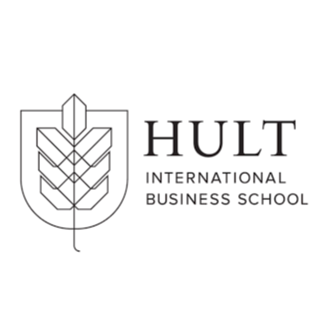
Massachusetts, USA • 27 Programmes

Massachusetts, USA • 93 Programmes
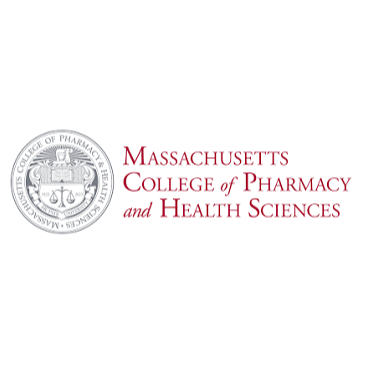
Massachusetts, USA • 47 Programmes
Tuition Fee : USD 39000 - 57000 / year
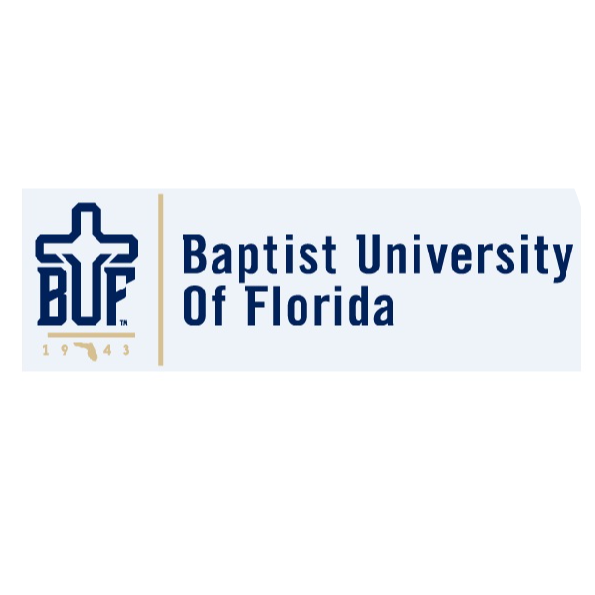
Massachusetts, USA • 2 Programmes
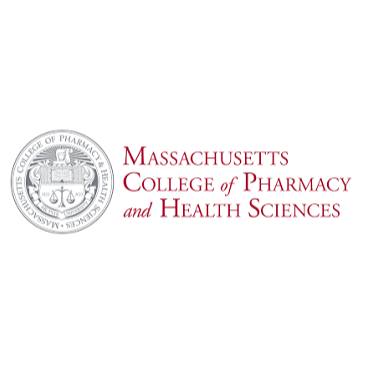
Massachusetts, USA • 17 Programmes
Tuition Fee : USD 39000 - 57000 / year
Top Places To Study In Canada
Province wise Popular university and colleges for Studying abroad.
- Universities in Alabama
- Universities in Alaska
- Universities in Arizona
- Universities in Arkansas
- Universities in California
- Universities in Colorado
- Universities in Connecticut
- Universities in Delaware
- Universities in District of Columbia
- Universities in Florida
- Universities in Georgia
- Universities in Guyana
- Universities in Illinois
- Universities in Indiana
- Universities in Iowa
- Universities in Kansas
- Universities in Kentucky
- Universities in Louisiana
- Universities in Maine
- Universities in Maryland
- Universities in Massachusetts
- Universities in Michigan
- Universities in Minnesota
- Universities in Mississippi
- Universities in Missouri
- Universities in Montana
- Universities in Nebraska
- Universities in Nevada
- Universities in New Hampshire
- Universities in New Jersey
- Universities in New York
- Universities in North Carolina
- Universities in Ohio
- Universities in Oklahoma
- Universities in Oregon
- Universities in Other Any where
- Universities in Pennsylvania
- Universities in Rhode Island
- Universities in South Carolina
- Universities in South Dakota
- Universities in Tennessee
- Universities in Texas
- Universities in Utah
- Universities in Vermont
- Universities in Virginia
- Universities in Washington
- Universities in West Virginia
- Universities in Wisconsin
- Universities in Wyoming
Popular English Language Proficiency Exams
Blogs and Articles
Study in USA Blogs & Articles
Updated on • Jul 17,2025 05:33 PM IST • USA
Top 10 Agricultural Universities in USA
Updated on • Jun 27,2025 05:25 PM IST • USA
How Much Do Nurses Make in the U.S.?
Updated on • Jun 23,2025 03:59 PM IST • USA
Updated on • May 15,2025 05:23 PM IST • USA
Master's in Computer Science in the USA
Updated on • Apr 08,2025 05:59 PM IST • USA
Updated on • Mar 11,2025 01:18 PM IST • USA
Updated on • May 22,2025 04:20 PM IST • USA
Updated on • Jan 21,2025 05:46 PM IST • USA
Updated on • Jan 16,2025 03:32 PM IST • USA
Updated on • Dec 31,2024 12:39 PM IST • USA
Exams Required to Study in USA
Updated on • Dec 31,2024 12:44 PM IST • USA
Masters in Project Management in USA
Updated on • Nov 26,2024 01:15 PM IST • USA
Updated on • Nov 25,2024 03:33 PM IST • USA
How to Get a Job in USA in 2025
Updated on • May 20,2025 05:20 PM IST • USA
Updated on • Jul 12,2024 05:59 PM IST • USA
Cost of Living in USA for Indian Students
Updated on • Jun 07,2024 05:57 PM IST • USA
Updated on • Jul 12,2025 04:02 PM IST • USA
1 Year Master of Science (MS) in USA
Updated on • May 30,2024 05:51 PM IST • USA
How to Get a Job in USA as an Indian Student?
Updated on • May 28,2024 01:22 PM IST • USA
Top MBA Programs in USA in 2024
Updated on • May 23,2024 05:56 PM IST • USA









